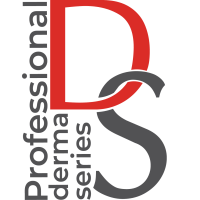Home / Online training / Video lectures / Thematic videos / “Delicacies” for the skin: vitamins, saturated and unsaturated fatty acids
“Delicacies” for the skin: vitamins, saturated and unsaturated fatty acids
“Delicacies” for the skin: vitamins, saturated and unsaturated fatty acids
The skin is the largest human organ and performs many functions:
- including protection from external factors,
- body temperature regulation,
- excretion of metabolic products
- participation in the synthesis of vitamin D
- iochemical reactions in the skin play an important role in maintaining its health and functioning.
- Collagen and Elastin Synthesis
- Melanin Synthesis
- Lipid metabolism
- Inflammatory reactions
- Antioxidant Protection
- Sweat Secretion
- Vitamin D Metabolism.
Vitamin catalysts of chemical reactions
Catalysts are substances that speed up chemical reactions without being consumed and remain unchanged after the completion of the reaction.
Vitamins play an important role in regulating and accelerating various biochemical processes in the body, ensuring its normal functioning. Proper nutrition and getting enough vitamins and nutrients from food is important for overall health and skin condition. However, it is also important to apply topical skin care products containing vitamins, as they can locally address specific problems or firm the skin.
Absorption of vitamins through the skin
Skin absorption of vitamins, also known as transdermal absorption, is the process by which vitamins and other nutrients enter the bloodstream through the skin.
It is worth noting that transdermal absorption of vitamins is generally less effective than nutrient intake through food or vitamin supplements. This is because the skin serves as a barrier to protect the body from harmful substances and infections. Transdermal absorption of vitamins is possible due to small molecules and special carriers that can penetrate the top layer of the skin (epidermis) and reach deeper layers, including blood vessels.
However, the degree of absorption of vitamins through the skin depends on several factors: Molecule Size, Lipidity, Product Ingredients, Skin condition
TOP 5 vitamins important for the normal functioning of the skin
- vitamin A
- vitamin C
- vitamin E
- niacinamide
- panthenol
Vitamin A
Vitamin A plays a critical role in skin health. It is a key ingredient in maintaining normal skin function, regulating cell growth and differentiation, and protecting against damage and maintaining overall skin health.
Vitamin A has a fat-soluble molecular form. It is present in the body in several forms, including retinol, retinoic acid, and retinol-like compounds.
Grandactive retinoid 2% (retinoid HPR)
- The latest generation retinoid is retinoic acid ester. Does not convert to retinaldehyde and retinoic acid.
- Binds to retinoid receptors on skin cells
- Regulates the transfer of genetic information from DNA to RNA, stimulates the synthesis of collagen and moisturizing glycosaminoglycans
- It does not cause side effects, because it avoids metabolic breakdown, the components of which cause side effects and allergic reactions.
- Suppresses the activity of matrix metalloproteinases – enzymes that destroy collagen, which are activated by UVB radiation and other pathological factors.
- Thins the upper stratum corneum of the epidermis, which leads to a reduction in wrinkles.
- Normalizes the processes of keratinization
HPR serum with granactive retinoid 2%
- Powerful skin cell renewal
- Regulation of keratinization at all levels
- Correction of acne-like rashes
- Made in Switzerland
Ingredients: RENOVAGE, GRANDACTIVE RETINOID 2% (Retinoid HPR), SWEET ALMOND OIL, GRAPE SEED OIL
Oily texture enhances transdermal absorption. Not comedogenic!
Vitamin C (Ascorbic Acid)
Ascorbic acid plays an important role in hydroxylation reactions that involve collagen synthesis, providing strength to connective tissues, and is also involved in iron metabolism.
Vitamin C is used in cosmetics in various forms such as L-ascorbic acid, ascorbyl palmitate, ascorbyl glucoside, etc. These forms help improve skin condition, stimulate collagen, lighten pigmentation, and protect against oxidative stress.
Ascorbyl glucoside differs from other forms of vitamin C in the following ways:
- Stability
- Mild to the skin
- Pigmentation Lightening
- Collagen Stimulation
Vita-active peptide serum
- Restoration of the lipid barrier of the skin
- Increase skin firmness and elasticity
- Revitalization and skin lightening
Ingredients: ACETIL HEXAPEPTIDE 8, VITAMINS B3, A, C, E, GROWTH FACTORS
Vitamin E
- Vitamin E (tocopherol) is an important antioxidant. It helps protect cells from free radical damage that can result from UV exposure, pollution, stress, and other environmental factors.
- Tocopherol acetate
- Alpha tocopherol
- Tocopheryl linoleate
- Tocopheryl succinate
Сalming light cream
- Gel texture
- Instant calming effect
- Peptide effect on the neuroreceptor apparatus
Ingredients: PALMITOIL TRIPEPTIDE-8, SQUALANE, ASCOPHILLUM EXTRACT, WHITE WILLOW BARK, UNISPHERES OF VITAMIN E
Synergy Vitamin C + E
The interaction of vitamin C and vitamin E in the skin is an important aspect of their combined use. They complement each other.
- Antioxidant synergy
- Vitamin E Regeneration
- UV Protection
- Collagen Stimulation and Skin Renewal
- Reduce the visibility of age spots and redness
Renew lifting cream
- Global reconstruction of the extracellular matrix
- Record increase in elastin synthesis by 15%
- Reducing pigmentation and age-related red spots
Ingredients: IDEALIFT, CHROMOCARE, NATURAL SILK POWDER, TOCOFEROL ACETATE, ASCORBYL PALMITATE, RETINYL PALMITATE
Vitamin B3 (Niacinamide)
Vitamin B3 (Niacinamide) has several positive effects on the skin:
- Moisturizing and barrier function.
- Reducing Inflammation.
- Improve skin texture and tone.
- Protection against oxidative stress.
- Reduced hyperpigmentation.
Niacinamide is the most common form of vitamin B3. With moisturizing and soothing properties, it helps to improve the skin’s barrier function, reduce inflammation and improve overall skin condition, reduce the appearance of pores and reduce hyperpigmentation. Niacinamide PC is a modernized formula of the well-known vitamin B3, but without the side effects of burning, feeling hot and warm. Improves microcirculation, which is especially important in cases of congestive post-inflammatory spots. Promotes brightening by reducing the movement of melanosomes. According to the latest scientific studies, Niacinamide PC is very effective against UV radiation (sunlight and blue light from gadget screens): it reduces the induction of ROS caused by blue light by 48%, reduces oxidative stress in the skin, preventing damage to proteins and lipids; significantly activates the repair of DNA damage caused by ultraviolet radiation.
Melano-block serum
- Interacts with the skin microbiome
- Perfectly even skin tone
- Protection of cellular DNA from UV radiation from UV radiation
- Made in Switzerland
Ingredients: BRIGHTENYL® , FLASHWHITE UNISPHERES®, UNITAMURON H-22 ASYNTRA®SL, NIACINAMIDE PC
Panthenol (provitamin B5)
Panthenol (provitamin B5) is a substance that has a number of beneficial properties: moisturizes, soothes and maintains healthy skin. Its action is based on its ability to penetrate the skin and turn into its active form – pantothenic acid.
- Skin healing and renewal
- Moisturizing
- Calming properties
- Antioxidant Properties
LIPID MANTLE
Lipid mantle, “lipid barrier” or “hydro-lipid layer”- this is a layer of lipids on the surface of the skin that plays a key role in maintaining the health of the skin and its functionality. This mantle is made up of fats, wax and other lipid substances that are produced by the sebaceous glands and other skin cells.
Fatty acids from a biochemical point of view
- Lipid barrier: Fatty acids contribute to the formation of a lipid barrier on the surface of the skin, which protects against environmental influences, ultraviolet radiation and infections.
- Fatty acids are important components that play a key role in the biochemical processes in the skin. They are the main structural components of cell membranes, and also provide energy, participate in the synthesis of lipids and other molecules.
- The overall composition and ratio of various fatty acids affects the health and condition of the skin. Eating fatty acids through food or using beauty products with them can help maintain health and improve the appearance of the skin.
- Structural role: Fatty acids are the building blocks for cell membranes. They are embedded in lipid bilayers that form double layers of membranes, providing structural integrity to cells and regulating cell permeability.
- Barrier to Moisture Loss: Fatty acids in the skin help create a barrier that prevents moisture loss and retains moisture in the epidermis. This is important to maintain skin hydration levels.
- Inflammatory processes and immunity: Some fatty acids, such as omega-3 and omega-6, can influence skin inflammation and the immune response. They may have anti-inflammatory properties and be involved in regulating the immune system.
- Synthesis of lipids and molecules: Fatty acids are precursors for the synthesis of various lipids and other biochemically important molecules such as hormones.
- Antioxidant Protection: Some fatty acids have antioxidant properties, helping to protect skin cells from free radical damage.
- Moisture and sebum regulation: Fatty acids help regulate the production of sebum, the natural oil secreted by the skin. This affects the level of hydration and comfort of the skin.
Replaced (saturated) and essential (unsaturated) fatty acids:
- Replaced Fatty Acids: The body can synthesize these fatty acids on its own from other molecules. They are not considered essential in the diet.
- Essential Fatty Acids: The body cannot synthesize these fatty acids on its own, so they must be supplied through the diet. This includes fatty acids such as omega-3 and omega-6.
TOP 5 essential fatty acids for skin
- Sphingolipids
- Oleic acid
- Linoleic acid
- Palmitic Acid
- Linolenic acid
Where can you find essential fatty acids?
- Jojoba oil
- Apricot kernel oil
- Sweet almond
- Grape seed oil
Lipid balancing light cream
- Light creamy texture
- Restoration of the lipid barrier, anti-inflammatory effect
- Normalizing the balance of sebum fatty acids
Ingredients: GLYCOSPHINGOLIPIDS, ORANGE EXTRACT, APRICOT KERNEL OIL, VITAMIN E
Soft balance clay mask
- Detox therapy with brightening effect
- Nourishment, hydration, regeneration for all skin types
Ingredients: KAOLIN, AVOCADO AND SWEET ALMOND OIL, BEESWAX, VITAMIN E
BB – cream Extra light
- “Smart” pigment
- Ultra light texture
- Natural UV filters
- Simultaneously care, camouflage, protection, make-up base
Ingredients: TITANIUM DIOXIDE, SWEET ALMOND OIL, GRAPE SEED OIL, VITAMINS B5, E


